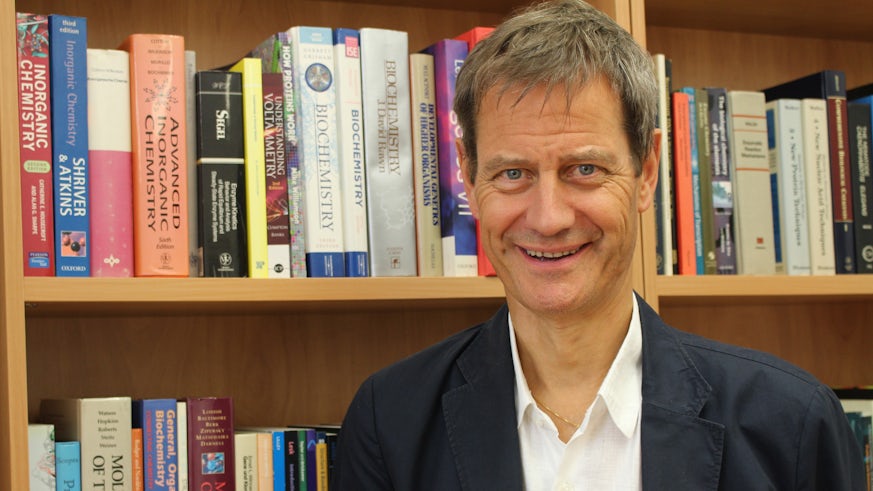Sesquiterpenes created in lab
17 February 2017

A group of scientists from Cardiff University have devised a novel way of efficiently producing sesquiterpenes in the lab.
Some of these natural products are found in spicy foods, insects, plant leaves and beer and have been shown to be an effective treatment for colds, cardiovascular disease, cancer and malaria.
Folk medicines have found sesquiterpenes as the active ingredient in treatments for ailments such as diarrhoea, burns, influenza and neurodegradation.
The team from the University’s School of Chemistry have now transformed the method of synthesising sesquiterpenes into a much quicker and much more efficient process, which allows them to double the production compared to previous methods.
Breaking the reaction
In their study, the researchers used an elegant way of releasing the sesquiterpenes from the enzyme biocatalysts used in the production process by breaking the reaction down into thousands of individual small reactions.
Until now, sesquiterpenes have been very difficult to make in the lab and the process is often time consuming and expensive. This is partly down to the fact that sesquiterpenes are very “sticky” and tend to bind to the enzyme that produces them. By squeezing the reaction along a winding plastic tube, they were able to separate the compound from the enzyme in thousands of tiny segments and collect the desirable products at the end of the experiment.
This new method will give researchers easy access to valuable compounds in order to further explore their effectiveness for treating some of the most pressing medical conditions such as malaria or cancer.
Professor Rudolf Allemann, Head of the School of Chemistry, said: “The production of terpenes often relies on their extraction from natural sources..."

"Our new synthetic methodology may lead to a more efficient and cost effective production of drugs and other bioactive molecules with applications as medicines, fragrances, food supplements or agrochemicals for pest control.”
Share this story
Our research expertise and services are available to organisations of all sizes across a wide range of industries.


